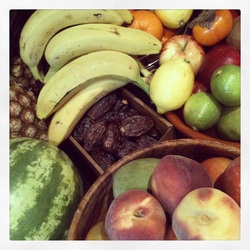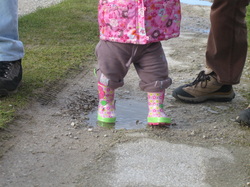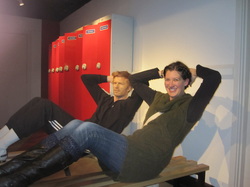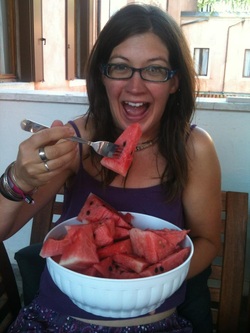Thoughts on the world, homeopathy, mindfulness and food...
A collection of blog posts - feel free to respond with your thoughts and comments - I love to have feedback - thank you!
 Back again, my juicing and smoothies workshop aimed at getting people started creating tasty smoothies and great juices with confidence is coming soon. On the 7th September 2-4 we'll meet and discover more about how, what, when and also why? It's always really important for me to know why I would choose to do something and eating this way has been no different. I want to do the research, make my mind up and then carry on doing more research. I guess that's just the way I am. I love to share what I've learnt along the journey and it's a practical, hands-on session where everyone gets to have a go at creating delicious drinks. Juicing and smoothies can be a great complement to homeopathy, or I suppose, visa versa. Both are working at enabling your body to heal itself and can work well together. It is my belief that great healing happens from the inside, and simplifying your diet to assist your body is a brilliant start on the path to increased health and vitality. £15pp including all fruit/veg to make and taste 4 great drinks, raw snacks and (time permitting) possibly we'll make an easy, tasty, delcious raw dessert. If you'd like to know more just get in touch. At the moment there's just 3 places left...
1 Comment
Tonight was calzone pizzas - which we made as little gluten free numbers. And I tested with a very non-vegan friend (admittedly I did buy her some cheese to go inside hers which was a condition of the testing process). Success from the cheeky little tester for her vegan dinner and a thumbs up from my lovely non-vegan friend for her veggie pizza.
All 4/4 recipes that I've tried from the book so far have been easy to cook, enjoyable to make and most importantly, very tasty too. Oil free, plant based, whole food cooking at it's best! Looking forward to the next recipe missions next week... I've got my eye on some peanut butter squares... they'd be great after an open water swim :) And I'm so pleased to say it passed my expert Mac and Cheese (she's American - I think they're really good at it? Or maybe it's just she's really good at it?) friend's standards... the leftovers were gone within minutes!
I can't claim to have concocted it all by my lonesome as it came from The China Study Cookbook. Which I am totally in love with. So far all three dishes I've created from it have been a great success. Tonight's fettuccine with broccoli and cashew sauce was all cleaned up by my diddy helper. The Mac and Cheese (well less fond was the diddy helper but with some persuasion did do great with it) and the Apple Cake. Mmmmmm. I did however adapt it for us as we don't generally use onion or garlic or soy products which are listed in the original. So I thought I'd share the Mac and Cheese that I made (partly as my mum - who's making great progress through The China Study) asked for it, as did aforementioned lovely American friend. You'll need: Pasta for 4 (I use gluten free generally - up to you) 2 cups of cooked, mashed butternut squash 1/2 cup raw cashews 1/2 cup oat milk 1/2 cup water 2 tbps nutritional yeast Pinch himalayan salt to taste Preheat oven to 180C Cook the pasta. Cook butternut squash (with enough water to cover the squash), drain then mash with a tiny amount of remaining cooking water until smooth. Process the cashews, milk, water, nutritional yeast in a food processor/high powered blender until smooth. Mix with mashed squash. Add pasta to the squash and sauce, add a pinch of salt if desired and mix well. Bake in the oven for 15 minutes. And then marvel at how something so delicious can have not even the teeniest little bit of cheese or milk in it! Magic Mac and Cheese!  The hardest bit about doing exercise (I think anyway) is getting dressed for it. Once I'm dressed, I'm off, pretty much committed and unlikely to do an about turn and change my mind. The easiest way for me to get fit (and following injury, lots of fab trips and travel and a school summer holiday - I'm going to have to follow my own advice any moment...) is to do a little bit at a time, build up gradually and before I know it I'm comfortably running 5k and thinking nothing of it. Swimming the same - a few half mile swims and before long I'm able to easily swim a mile. A little at a time. So I figure there's no difference with foods if you'd like it to be this way. I pretty much dived into a veggie diet from a point of nearly veggie-ness anyway, then vegan 2 months later and then raw vegan 3 months after that but to stealthily have the changes happen would be great too. To introduce an extra fruit meal a day a few days a week - for example a big bowl of fruit for breakfast (my favourite competing breakfast is 6 bananas and 10 dates (the dates blended into toffee) which keeps me smiling for hours), a fruit smoothie or a big juice. Adding in a huge salad with your evening meal can be another baby step - or simply just adding an extra portion of fruit a day can be a big step for some people. Steady, baby steps are a great way to get to a brilliant place. If you do want to move faster you can always up the pace, grab some of the recommended books, have a chat with someone who's on the same journey or find relevant YouTube videos which can be wonderfully motivational. Slow and steady can win the race in the end too. Happy fruit days x  Go! But how? With what? If you're not eating milk, cheese, eggs, meat, fish, and maybe even looking at eliminating oils, salt and gluten - then what's really left?!? It was great to get so many comments and remarks following my last blog, and consistently the how? what? when? questions seem to be the most common. I find it pretty easy now sorting out my diet but it's still evolving, not perfect and, well I'm not sure the journey would be all that great if it was always perfect all the time. My own transition was pretty gradual from full time veggie last September (from reluctant and occasional meat eater) to badly done vegan in November (so many excuses) to high carb, low fat raw vegan in February. In the last few months, I've spent time in France, Germany and Italy as well as going camping several times and I've managed to maintain eating that way (with some slight fluctuations but always eating a vegan diet). To use a metaphor I thought that adopting a raw diet was like going through a door into another room and what I found was that I went through the door and into a hotel - I could go through loads of other rooms and choose lots of different styles. To get back to food though two of the main options were high protein/fat or high carb/low fat. I feel that moving onto a vegan diet is very similar. There's loads of options, choices and routes to take and how to know you're choosing the right one? Is there a right one? To a high degree I believe we do all need to find the right thing for ourselves, however for optimal nutrition and physical health high carb/low fat makes most sense to me. I read Doug Graham's The 80-10-10 Diet which I would recommend to everyone regardless of whether raw food was a consideration or not. Doug recommends raw foods but the ratios that he discusses (80%+ of calories coming from carbohydrates and a maximum of 10% coming from proteins and fats) fit in line with several other things I've read. In particular this co-incides with the ratios that come through as beneficial for health in The China Study book and can be adopted for cooked foods as well as used for raw foods. My most frequently asked questions - What do you eat? Fruits and vegetables with a small amount of nuts and seeds. However if I was adopting a cooked vegan diet following a similar ratio (which Dr Doug Graham (along with many athletes) believes as optimal for physical performance) I would include whole grains such as quinoa, oats, amaranth, wild and brown rice, polenta, barley as well as beans, legumes and non-dairy milks too. But where do you get your protein from? My fruits and vegetables, and a small amount of nuts and seeds. I feel it could be important to share here that the protein required by the body to replace excreted proteins (relative to total calorie intake) is 5-6%. The RDA is set at 9-10%, allowing for individual variation. The majority of people way exceed this level. My mum made up a fruit salad the other day which contained mango, blueberries, grapes, pineapple and bananas and this contained 4.3% protein and 3% fat. There is more protein out there than you think. And - where does the meat you've been eating til now get it's protein from? If it was lucky then grass, if not then largely plant based foods. What books would you recommend to read to start with? The China Study T.Colin Campbell and Thomas M. Campbell The 80-10-10 Diet Dr Doug Graham Forks over Knives Gene Stone And for cooking from? You'll have to bear with me a teeny bit as I've been not cooking my foods since February but have had a keen interest for helping others on this route so my favourites so far are: The China Study Cookbook Forks over Knives The Cookbook Both of these fit with the low fat approach, unlike many vegan recipes which can be very high in fat with added oils and nuts. And the man I can credit with the start of my journey last year - I would love everyone to read Scott Jurek's Eat and Run. Scott discovered he recovered better, was all round healthier and was able to train harder on a vegan diet. He did experiment with raw foods and in the end went back to cooked vegan. It's a great read for inspiration as well as recipes and ideas. His granola is the best I've had too! How am I best to get started? I always try to plan my menus ahead of time - so I can shop for the week instead of keeping running into the market. Personally I have a big fruit breakfast (my current favourite is a watermelon), a bowl of fruit or green smoothie for lunch, and for dinner often have a fruit starter then a load of veggies (in maybe a raw pasta dish/salad wraps/huge salad with a yummy fruit based dressing). The books I've listed have lots of ideas for non-raw meals though and it's worth a look through then plan for the week. How quickly should I make the change? It's really up to you. We can change overnight should we desire to and the hardest part is often in our heads. Change can be immediate. However it doesn't have to be. It can be a gradual journey like, for example the one I undertook, or really whatever speed suits you. Once you're aware of unhealthy practices and unhelpful eating habits it may be harder to hang onto them than you think. Will I be getting enough nutrients/calories? One of the biggest mistakes people can make when adopting a raw food/vegan diet is not eating enough. When you're too busy on concentrating on what you're not to have it's easy not to eat enough. Tools such as CRON-O-Meter can be great at checking on this (as well as intriguing to see just how much protein or fat is in foods where you'd never expect it). Not getting enough calories will make it harder to maintain this lifestyle. It really isn't one of denial and if you're not eating abundantly and enjoying it then it's going to be hard work. Would you like more help? I've more blogs planned around getting started, as well as the whys of plant based eating, I've a 5 day fully raw plan to share soon and lots more. However if you'd like more information or help right now then just get in touch - I'm more than happy to help with wherever I can guide you on your journey. Before reading the China study I thought it would be a hard slog, lots of long worded research, tricky concepts and that I'd have to concentrate on it all loads. Not, maybe the perfect holiday read. Yet having had no time to read pre-holiday I took it all the same. And actually I really enjoyed it. I was intrigued, engaged and interested from beginning to end and would recommend to everyone with health concerns especially, but really anyone wanting to continue with or get back to good health. Yes there's lots of research discussed, and yes I had to concentrate - but it was well written and made compelling reading. I promised a good friend I'd do a short summary but should anyone wish to read the full version I did treat myself to a second copy so I could keep it and lend it out too... having my book and reading it! The China study isn't the only research in the book referred to although it is certainly very impressive. A study of diet and health involving 650 000 workers looking at death rates for 12 different types of cancer within 2400 counties in China and 880 million of their citizens. The findings demonstrated that in China cancer was geographically localised - certain cancers were far more common in some areas than others, and, in some counties the rates of cancers were 100 times greater than those with the lowest rates. 'Western' diseases - those of affluence (or nutritional extravagance) such as cancers (colon, lung, breast, leukemia, childhood brain, stomach and liver), diabetes and coronary heart disease - occured more where there was higher cholesterol, higher animal fat intake, lower fibre intake, higher animal protein. T. Colin Campbell states: 'The same low-animal protein, low fat diet that helps prevent obesity also allows people to reach their full growth potential while working other wonders as well. It better regulates blood cholesterol and reduces heart disease and a variety of cancers.' He later says: 'There is no such thing as a special diet for cancer and a different, equally special diet for heart disease. The evidence now amased from researchers around the world shows that the same diet that is good for the prevention of cancer is also good for the prevention of heart disease, as well as obesity, diabetes, cataracts, macular degeneration, Alzheimer's, cognitive dysfunction, mutiple sclerosis, osteoporosis and other diseases. Furthermore this diet can only benefit everyone regardless of his or her genes or personal dispositions.' There are statistics - incredible statistics throughout the book which give weight to the recommendations, and also scarily interesting information about how the governments (particularly in the states however I'm not so sure the UK is so much better) are aware of dietary recommendations for health and yet recommends different proportions and amounts in their literature. To quote directly from Dr Campbell 's The China Study book (p348): 'Never before has there been such a mountain of empirical research supporting a whole food, plant-based diet. Now, for example, we can obtain images of the arteries in the heart, and then show conclusively, as Drs Dean Ornish and Caldwell Esselstyn Jr have done, that a whole food, plant based diet reverses heart disease. We now have the knowledge to understand how this actually works. Animal protein, even more than saturated fat and dietary cholesterol, raises blood cholesterol levels in experimental animals, individual humans and entire populations. International comparisons beween countries show that populations subsisting on traditional plant based diets have far less heart disease, and studies of individuals within single populations show that those who eat more plant based foods not only have lower cholesterol levels but also less heart disease. We now have a deep and broad range of evidence showing that a whole food, plant based diet is best for the heart. Never before have we had such a depth of understanding of how diet affects cancer both on a cellular level as well as a population level. Publised data show that animal protein promotes the growth of tumors. Animal protein increases the levels of a hormone, IGF-1, which is a risk factor for cancer, and high casein (the main protein of cow's milk) diets allow more carcinogens into cells, which allow more dangerous carcinogen products to bind to DNA, which allow more mutagenic reactions that give rise to cancer cells, which allow more rapid growth of tumors once they are initially formed. Data show that a diet based on animal foods increases females' production of reproductive hormones over their lifetime which may head to breast cancer. We now have a deep and broad range of evidence showing that a whole food, plant-based diet is best for cancer. Never before have we had the technology to measure the boimarkers associated with diabetes, and the evidence to show that blood sugar, blood cholesterol, and insulin levels improve more with a whole food, plant-based diet than with any other treatment. Intervention studies show that when people who have type 2 diabetes are treated with a whole food, plant-based diet, they may reverse their disease and go off their medications. A broad range of international studies shows that type 1 diabetes, a serious autoimmune disease, is related to cow's milk consumption and premature weaning. We now know how our autoimmune system can attack our own bodies through a process of molecular mimicry induced by animal proteins that find their way into our bloodstream. We also have tantalizing evidence linking multiple sclerosis with animal food consumption and especially dairy consumption. Dietary intervention studies have shown that diet can help slow, and perhaps even halt, mutiple sclerosis. We now have a deep and broad range of evidence showing that a whole food, plant-based diet is best for diabetes and autoimmune diseases. Never before have we had such a broad range of evidence showing that diets containing excess animal protein can destory our kidneys. Kidney stones arise because of the consumption of animal protein creates excessive calcium and oxalate in the kidney. We know now that cataracts and age related macular degeneration can be prevented by foods containing large amounts of antioxidants. In addition, research has shown that cognitive dysfunction, vascular dementia caused by small strokes, and Alzheimer's are all related to the food we eat. Investigations of human populations show that our risk of hip facture and osteoporosis is made worse by diets high in animal based foods. Animal protein leaches calcium from the bones by creating an acidic environment in the blood. We now have a deep and broad range of evidence showing that a whole food, plant-based diet is best for our kidneys, bones, eyes and brains. More research can and should be done, but the idea that whole food, plant-based diets can protect against and even treat a wide variety of chronic diseases can no longer be denied. no longer are there just a few people making claims about a plant-based diet based on their personal experience, philosophy, or the occasional supporting scientific study. Now there are hundreds of detailed, comprehensive, well-done research studies that point in the same direction.' The evidence is out there. Much the same as the cigarette cover up years ago - the big food companies continue to run the show. I think more and more of us are hearing the truth though and really listening. Plant based is undoubtably the healthy way forwards - for our plant, our animals, but most of all, ourselves. Do get in touch if you're confused on where to start - I'm always happy to help. I'm working on how to simpify things and make it even more accessible for even more people... more info to come!  Cheers - here's to healthy, happy, plant based feasts! |
AuthorI'm a Homeopath working in the Skipton (North Yorkshire) area. I am also able to offer food intolerance testing using Kinesiology and advice around diet and lifestyle. |
|
07734 861297
[email protected] Em Colley Homeopath Practitioner of Classical Homeopathy BSc(Hons) Psychology and Neuroscience Laughter Yoga Leader Focussed Mindfulness Practitioner |